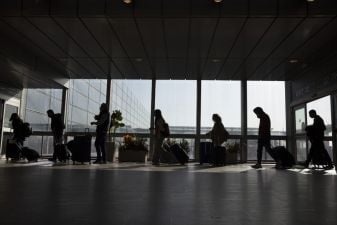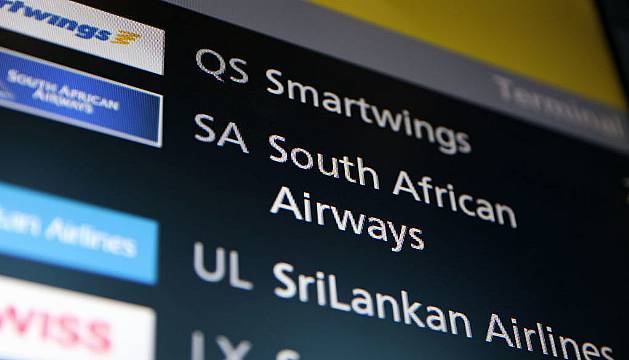A clinical virologist at the laboratory in South Africa where the Omicron Covid variant was detected has said it was the vigilance of a junior scientist that led to the discovery.
Dr Allison Glass of the Lancet Laboratory in Johannesburg said the new strain was first noticed when test samples came up positive for Covid, but negative for the "S" gene – similar to the Alpha variant.
This raised questions whether Alpha was resurging or if it was something new.
It was monitored for a few days and the samples were sequenced, leading to the discovery of the Omicron variant.
"The symptoms we are seeing are mild, currently. So very similar to what we've seen with other mild cases of Covid-19 from other variants," Dr Glass said.
"We are starting to see some hospitalisations, but I think that's a factor of the number of cases that we're seeing. But as yet, there is no evidence to suggest that this variant causes more severe disease than previous variants."
She said that it is a little early to say how the new variant will react to the vaccine. Infections in people who have been vaccinated had been noted, but they had either no symptoms or mild ones.
"We are still feeling optimistic that as we see more cases coming through that the vaccine will continue to provide protection against disease and especially severe disease."
Upon realising that a new variant had been discovered, Dr Glass said the first thing that went through her mind was "there goes the quiet December that we were hoping for".
She said that a new variant raises concerns about whether the virus has found ways to evade immunity or vaccine-induced immunity. "We are watching to see what happens there," she added.
Travel bans
Speaking to RTÉ's Morning Ireland, Dr Glass also expressed disappointment that travel restrictions had been imposed on South Africa when the reality was that such information was important to plan for a possible surge, she said.
Dr Glass said that such information needed to be disclosed, but reactions, as had been seen in the past few days, could make the scientific community reluctant to be transparent “when there is this type of backlash”.
Many countries do not carry out genome sequencing and just because they were not aware did not mean there were no variants.
“It’s disappointing that we’re being punished for being on top of what’s happening,” Dr Glass said.
She said that it was a good thing for the rest of the world to be aware of what different countries are seeing, "because we know that these variants do travel very rapidly globally".
As a virologist, Dr Glass said that she knew that the virus was going to continue to change. “That’s their nature – to evolve, it’s not unexpected.”
She said it was good to be aware of what was happening and that knowledge was important for capacity planning, but it was early days. “We shouldn’t jump to any conclusions,” she said.
Variants were a way of showing that the virus “will stick around,” but they should not cause panic, she urged.
Omicron questions
Meanwhile, World Health Organisation spokesperson Dr Margaret Harris has said that it will be weeks before there are answers to the risks posed by the new variant of Covid-19 Omicron.
The reason the WHO had described it as a variant of concern was because it remained unknown how easily it could be transmitted, if it could evade vaccines and if people were being reinfected with it.
The number of mutations in the variant was another reason for concern, she told Newstalk Breakfast.

In the meantime countries should do everything they could to double down on non-pharmaceutical measures to stop transmission such as cutting down on socialisation, wearing masks and ensuring there is good ventilation when indoors.
Vaccine inequity was also an issue, she said, as it gave the virus an opportunity to reproduce and develop stronger variants.
Dr Harris urged that South Africa not be punished for doing great research. She also encouraged vaccine manufacturers to share the jabs with countries that need them so every country could be vaccinated.
“This is not the big one, but it will come if we don’t have vaccine equity,” she warned.







